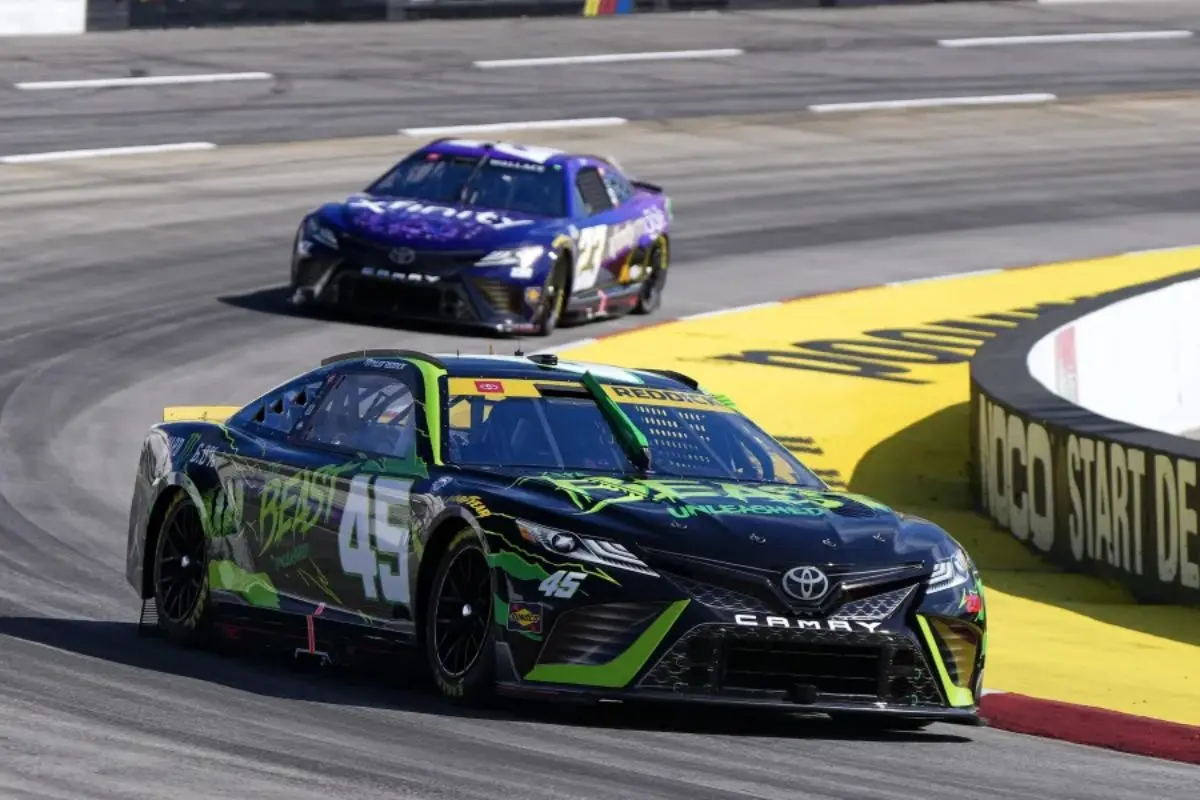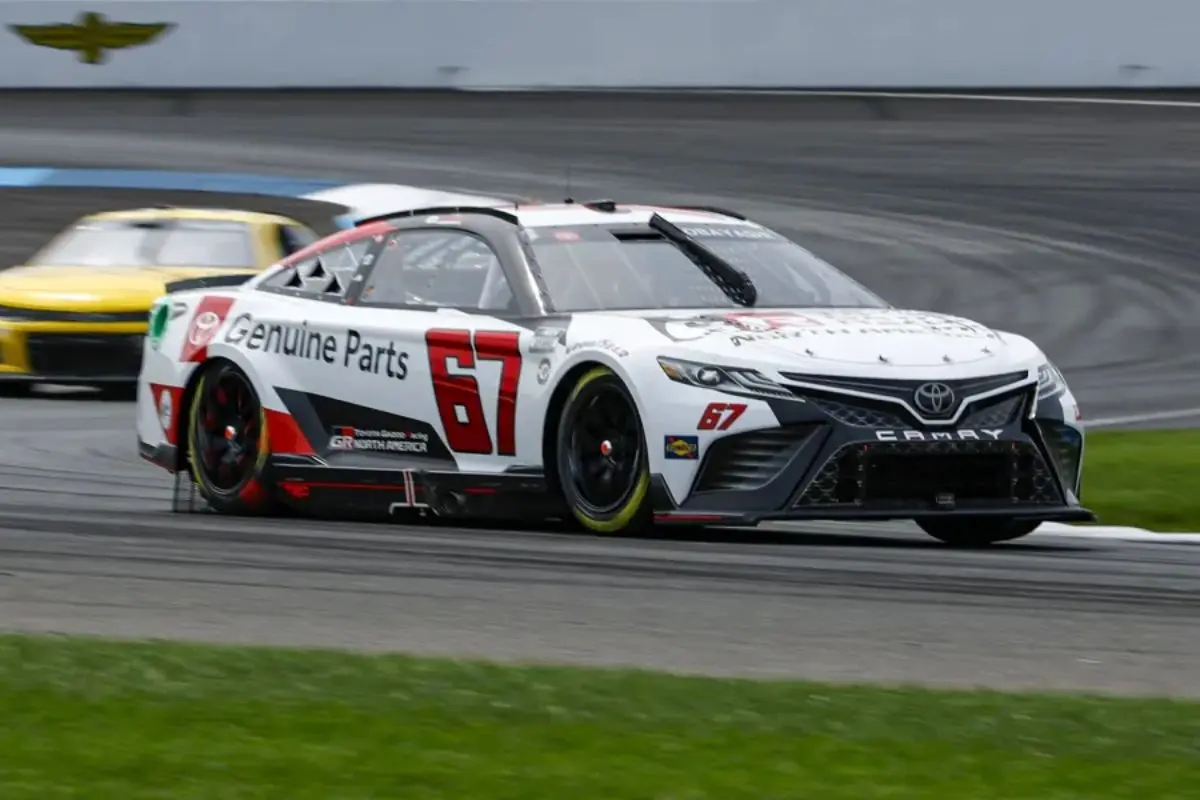23XI Racing and FRM may suffer critical losses regarding their charter status for the 2025 NASCAR season. Recent court rulings have complicated their positions, with ongoing legal challenges creating an ambiguous future. The lack of a charter could severely impact their financial stability, limit revenue opportunities, and hinder sponsorship attraction.
Key Highlights
- The denial of a preliminary injunction leaves 23XI Racing and FRM facing operational uncertainties for the 2025 season.
- Without charter status, both teams risk reduced revenue opportunities and challenges in securing sponsorships.
- Ongoing legal issues threaten the competitive positioning of 23XI Racing and FRM amidst the new NASCAR TV deal.
- The inability to secure charters may lead to talent retention problems, as key personnel might seek more stable opportunities.
- The overall integrity of NASCAR could decline if crucial teams like 23XI Racing and FRM exit due to charter issues.
Court Ruling Against 23XI Racing
Recently, a federal court decisively ruled against 23XI Racing’s bid for charter status, denying their motion for a preliminary injunction. This ruling is noteworthy, as it leaves the team, co-owned by Michael Jordan, with uncertain prospects for the 2025 season. The court’s decision stems from a failure to demonstrate that the absence of the injunction would cause irreparable harm to the team, a crucial component in such legal contests.
The implications of this ruling extend beyond immediate charter status; they highlight the precarious legal landscape in which both 23XI Racing and Front Row Motorsports find themselves as they pursue anti-trust claims against NASCAR. The denial of the injunction means the teams must continue their legal battle without the protective buffer they sought, placing considerable strain on their operations and tactical positioning within the NASCAR ecosystem.
Despite the setback, 23XI Racing has opted to file an appeal, indicating a determined approach to challenge the ruling. Jeffery Kessler, the attorney representing the team, expressed optimism regarding the expedited evidence-gathering process, which could facilitate a more rapid resolution.
“We are pleased with the court’s decision to expedite discovery and fast-track the schedule in our case against NASCAR.” – Jeffery Kessler
However, with NASCAR in a position to maintain the status quo, 23XI Racing’s timeline for securing a charter remains uncertain, potentially jeopardizing their competitive edge and financial stability.
Request for an Expedited Appeal
Seeking a swift resolution, 23XI Racing and Front Row Motorsports (FRM) have formally requested that their appeal for a preliminary injunction be expedited. The urgency of their request stems from the looming uncertainty surrounding their charter status, which threatens their operational integrity and competitive viability in the 2025 season.
They propose that oral arguments be scheduled for the court’s session from December 10-13, advocating for a timely adjudication that could prevent considerable disruptions to their teams.
However, NASCAR has expressed a preference for a standard briefing schedule, asserting that it is “reasonable and appropriate.” This divergence in perspectives highlights a crucial tension between the governing body and the teams, as the latter face the possibility of an extended timeline for the appeal.
If the appeal is not expedited, the next available hearing could be delayed until March 18, 2024, a scenario that would compel both 23XI and FRM to compete as open teams in essential events like the Clash and Daytona 500.
In their court filings, 23XI and FRM have articulated the gravity of their situation, emphasizing that “irreparable harm has already begun.” The inability to guarantee chartered status jeopardizes important relationships with sponsors, drivers, and fans, creating an environment of instability that could have long-lasting consequences.
“Irreparable harm has already begun because Appellants cannot assure sponsors, drivers, and fans that they will be able to compete as chartered teams in 2025-a condition that puts those critical relationships with sponsors, drivers, and fans at immediate risk.” – 23XI and FRM’s filings
In filing, 23XI/FRM:"Irreparable harm has already begun because Appellants cannot assure sponsors, drivers, and fans that they will be able to compete as chartered teams in 2025-a condition that puts those critical relationships with sponsors, drivers, and fans at immediate risk" https://t.co/PfY9hRCPuX
— Bob Pockrass (@bobpockrass) November 15, 2024
As they navigate this precarious landscape, the outcome of their expedited appeal may very well dictate the path of their organizations in the forthcoming season.
Risk of Losing Chartered Status
The potential loss of chartered status looms large for 23XI Racing and Front Row Motorsports, creating a precarious situation that could fundamentally alter their operational landscape. With the possibility of a court hearing being postponed to March next year, these teams face the dire prospect of losing their charter rights. Both organizations have yet to sign the new charter agreement that extends through 2031, placing their futures in jeopardy.
The ultimatum issued by NASCAR, while controversial, reflects a tactical push towards stability within the league. However, the fact that only two teams have refrained from signing the new deal emphasizes the precarious nature of the situation for 23XI Racing and Front Row Motorsports. Their hesitance may stem from concerns regarding the revenue splits, which have been a focal point in negotiations. Should these organizations lose their chartered status, they could face notable challenges in both competitiveness and financial sustainability moving forward.
The TV Deal and Revenue Splits
As NASCAR prepares to implement its new $7.7 billion TV deal, the focus shifts to how revenue splits will impact teams, particularly those like 23XI Racing and Front Row Motorsports, who are grappling with the uncertainty of their chartered status. This landmark agreement, spanning seven years, represents a notable financial lifeline for a sport facing challenges in maintaining its competitive viability.
While NASCAR has stated that the teams will be the primary beneficiaries of this deal, the subtleties of the revenue distribution remain critical. NASCAR President Steve Phelps highlighted that the financial structure is designed to alleviate the economic strains teams currently endure, indicating a shift in focus towards sustainability.
“I won’t go into what the money split looks like, but what I will say is that the amount of money it now puts the race teams, starting in 25, as the single largest beneficiary of our media deal. And we did that because the race teams were upside down financially.” – Steve Phelps
Yet, the lack of transparency surrounding the specific split remains a concern for teams operating on the margins, such as 23XI and Front Row, which rely heavily on consistent revenue streams to navigate the escalating costs associated with racing.
The anticipated influx of revenue could indeed empower teams to invest in performance and infrastructure, but those without charters may face a precarious future. The ability of these organizations to capitalize on the new deal hinges not only on their current performance but also on the security of their charter status.
As the sport evolves, the implications of the TV deal will reverberate throughout the garage, potentially determining which teams thrive and which struggle to survive in an increasingly competitive landscape. Ultimately, the success of this financial arrangement will depend on both its execution and the stability it provides to all teams involved.
Exclusion of 23XI Racing and FRM from 2025 Plans
Amid the backdrop of NASCAR’s new TV deal and its implications for team finances, the exclusion of 23XI Racing and Front Row Motorsports (FRM) from the 2025 season plans raises substantial concerns.
With NASCAR’s commitment to limiting the upcoming season to only 32 charters, this decision not only jeopardizes the operational viability of both teams but also reflects wider issues within the league’s governance.
The ramifications of this exclusion can be categorized into four critical areas:
- Financial Strain: The absence of a charter diminishes potential revenue streams, placing both teams at a competitive disadvantage.
- Market Positioning: With fewer charters available, the teams may struggle to attract sponsorships, as partners often seek guaranteed participation in events.
- Talent Retention: Key personnel, including drivers and crew members, may seek opportunities elsewhere, undermining team stability and performance.
- Legal Implications: Ongoing legal proceedings surrounding charter allocations could further complicate the situation, delaying resolutions and exacerbating uncertainty.
The exclusion of 23XI Racing and FRM not only raises questions about their future but also signals a potential shift in the dynamics of NASCAR.
If these teams cannot secure their places within the charter system, the consequences could flow through the wider NASCAR ecosystem, affecting not only their operations but also the league’s general health.
News in Brief: 23XI Racing and FRM May Suffer Critical Losses
The uncertainty surrounding the 2025 charter status for 23XI Racing and Front Row Motorsports highlights major vulnerabilities within the competitive landscape of NASCAR. The recent court ruling and the pending appeal further complicate their positions, potentially leading to considerable financial losses.
As the implications of the new TV deal and revenue distribution take shape, the exclusion of these teams may alter their operational viability and influence future tactical decisions within the sport.
ALSO READ: 23XI Racing and FRM Refuse to Surrender Against NASCAR Despite Major Setback



